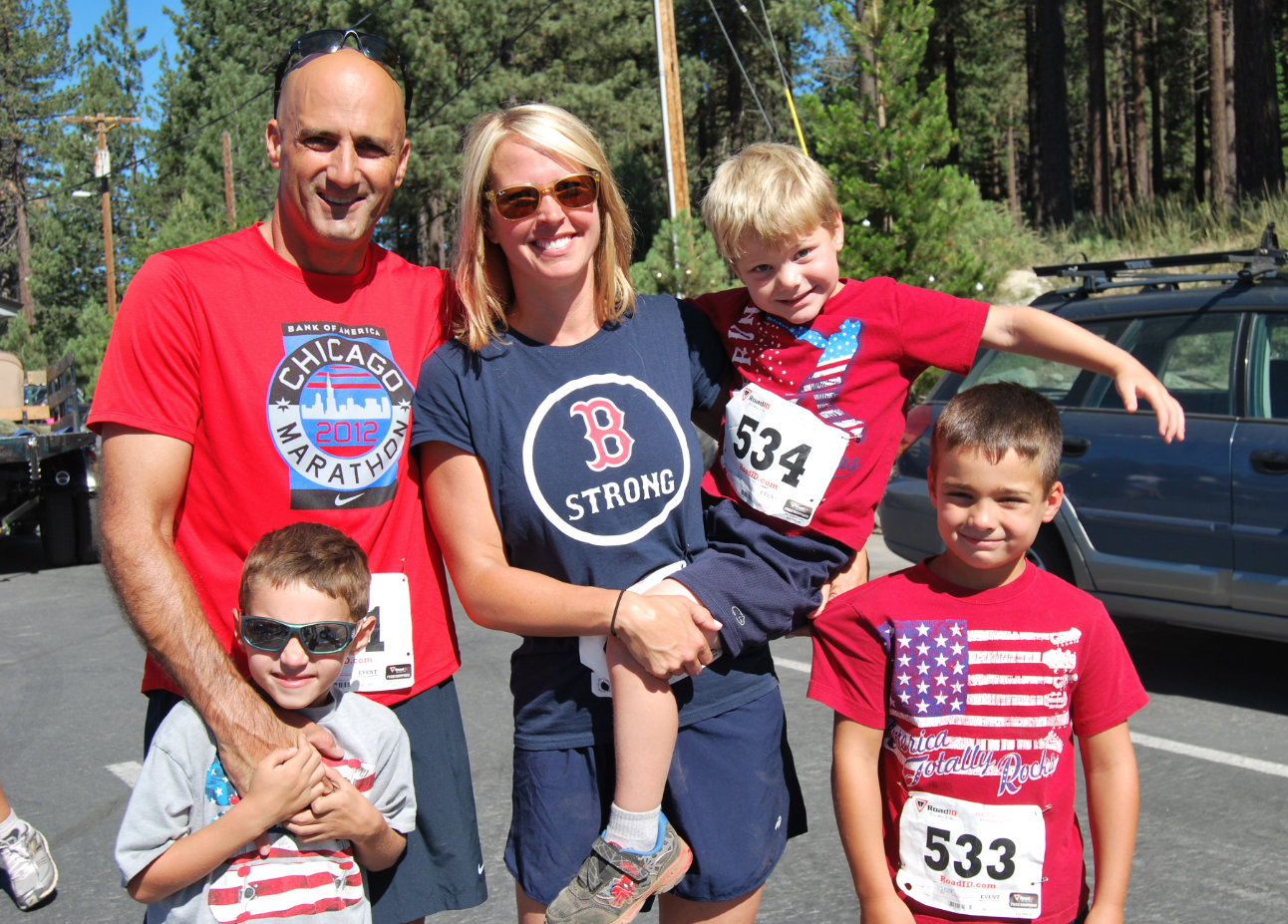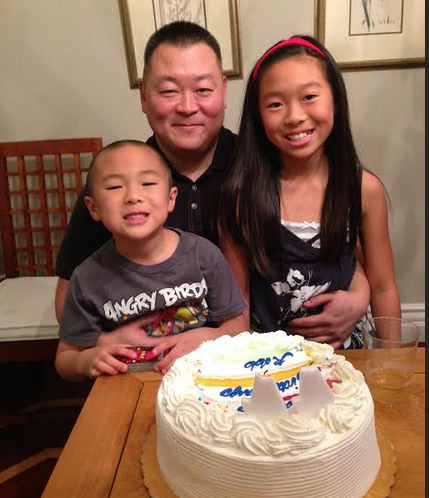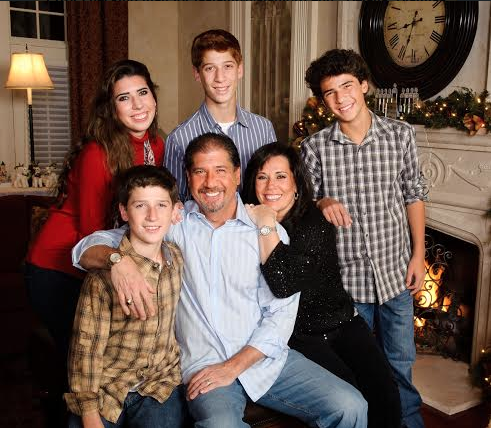
Correction appended, September 16
When Clif Bar CEO Kevin Cleary speaks to reporters about his work-life balance, they sometimes ask how he squeezes a workout into his workday. But no one ever asks him how he finds time to raise his three young sons, all 6 and under.
The same goes for Intuit CEO Brad Smith, “I have been asked about my father and mother, but I’ve never been asked what it feels like to be a father and do this job.”
However, when a woman enters the upper echelons of the C-Suite, she better have her work-life balance explainer written and approved by PR. In fact we’re used to top-ranking female execs being asked about motherhood. In June, Matt Lauer asked GM’s Mary Barra if she could be an accountable CEO and mom. Weeks later, the Atlantic asked PepsiCo CEO Indra Nooyi if “women can have it all.” And before that, we wondered: can Hillary Clinton be both grandmother and president? Can Marissa Mayer be both pregnant and CEO?
Of course, working mothers often face stigmas in the workplace that working fathers simply do not — but the challenges of parenthood and career exist for both genders. To find out more about the family issues men struggle with, TIME spoke with 7 male executives about fatherhood and work-life balance.
Leaning In at Home

Some C-Suite dads take “lean in” approach. Clif Bar’s Cleary leaves work early every Thursday to coach his twin sons’ little league. H&R Block CEO William Cobb has coached three different sports over the years.
“I take a lot of red-eyes,” says Sid Mathur, VP of Mattel subsidiary HIT, which specializes in pre-school entertainment. A condition of his high-intensity job was that he has to be home every weekend, wherever he was in the world during the week. And to make the most of the days he has, Mathur created the traditions of cooking lemon ricotta pancakes every Sunday (“while subliminally playing classical music in the background”), and holding bi-weekly camping nights where he and his 7-year-old Trisha build forts in the living room.
What Fathers Regret
Many executives TIME spoke to say balance was very difficult to maintain early in their careers. When Mathur worked in private equity, he was on the road so much that after he left, “I had to spend time getting to know my [2-year-old] daughter… she wasn’t as close to me as I would like.”

Intuit CEO Brad Smith’s biggest regret on the way up was leaving his wife and newborn daughters, now 17 and 19, the day after both of them were born for work trips.
“My daughters are the reason I do everything,” says Smith. “But there are so many moments in hindsight I would have gone back and done differently.”
Intuit’s Smith now tells summer interns that there are what he calls “rubber” and “crystal” moments in life. While you can bounce back from missing a rubber moment, like one of 100 soccer games, “do not ever drop a crystal moment,” like a graduation or birth of a child, he counsels. Furthermore, when Smith was named CEO, he told his daughters that not only would they remain a priority, but, “from that moment we started Daddy Daughter Breakfasts — on Saturday I took one and on Sunday I’d take the other and we’d talk about whatever they wanted.” The tradition is going strong seven years later.

Robb Fujioka is the president and founder of Fuhu, a startup that creates tablets for children, and works in what may be the ultimate kid-friendly environment. “Seven to eight employees bring their kids in the office on a relatively regular basis, and we have a ball pit in the conference room,” he says. But there is no “work-life balance” in his life as an entrepreneur.
“My daughter comes home and says ‘My friend’s dad is really lazy, he’s home when she’s home and watches TV and plays with us,'” Fujioka laments. “And I’m like, that’s what a normal family is like.”
Fujioka says he has never had a vacation where he didn’t have to work. And yet he notes his family probably would not have time to take vacations unless they were extensions of work trips. Some male CEOs consciously combine the two. “My older daughter is very intellectually curious, so I take her on work trips,” says Rob Mathias, CEO of Ogilvy Public Relations, North America.
New Expectations For Fathers

As men strive to become more integral parts of their children’s lives, a 2011 paper by the Families and Work Institute (FWI) titled The New Male Mystique found “men are experiencing what women experienced when they entered the workforce in record numbers.” In fact, 60% of working fathers versus 47% of working mothers reported experiencing work-family conflict. (It should be noted, the results were for dual-income families. While the men in TIME’s informal survey say they experienced conflicts, all but one have wives who are currently stay-at-home moms.)
According to FWI president Ellen Galinsky, the study reveals that male CEOs face the pressures women do. The study, “gave them permission to talk about it,” says Gallinsky, remembering many executives got “very emotional” upon hearing its results. “It feels to them that they have it not as hard as women do….” Yet, Galinsky says the men also struggled with these issues.
A 2013 Pew Research Study on working families found 46% of fathers reported they don’t think they spend enough time with their children versus 23% of mothers.
Slowly, men are beginning to share their fears of bungling the work-life balance equation. H&R Block’s Cobb notes that male interns have asked him how they can incorporate family and work life, as they expect to have both. So do his three sons. “Anyone who tells you can have it all, that’s just untrue,” he says. “But I do think that you can have a lot.”

In fact, prioritizing family can prove be beneficial to work performance. A 2003 FWI study found that the 32% of male and female executives who claim to place the same priority on work and family “feel more successful at work, are less stressed, and have an easier time managing the demands of their work and personal/family.”
And anecdotally, executives eagerly told TIME about all the lessons fatherhood had taught them as a CEO, ranging from patience to the necessity of varying management techniques to “learning to embrace risks, like when your kid learns to drive,” says Ogilvy PR’s Mathias.
It Comes From the Top
“At any moment you are going to feel guilty about what you’re not doing, like today I’m missing the World Economic Forum in Europe to move my daughter into her dorm in USC,” EY CEO Mark Weinberger says in between Bed Bath & Beyond runs. “If I can’t be here today, then I won’t get permission and understanding tomorrow when I won’t be here — like when I miss her Parents Weekend for our Entrepreneur of the Year program.”

When Weinberger asked for his children’s permission to take the role of CEO, the condition was that he maintain family commitments. His first test came the day after his first speech as CEO in China. When asked onstage if he would be taking selfies on the Great Wall with the thousands of employees in attendance, Weinberger said he couldn’t — he had to jump on a flight back to Washington D.C. for his daughter’s driver’s test the next morning.
“Afterwards I got hundreds of emails: Not a single person remembered the terrific speech I gave, but everybody remembered I went home for my daughter,” he says. “It brought home to me how powerful leading by example is. You can have all the initiatives you want saying you can have flexibility, but until some of the real leaders make the choice to choose family, I don’t think people feel like they have real permission to do it.”
Correction: The original version of this story misstated the name and title of Rob Mathias, CEO of Ogilvy Public Relations North America.
More Must-Reads from TIME
- Cybersecurity Experts Are Sounding the Alarm on DOGE
- Meet the 2025 Women of the Year
- The Harsh Truth About Disability Inclusion
- Why Do More Young Adults Have Cancer?
- Colman Domingo Leads With Radical Love
- How to Get Better at Doing Things Alone
- Michelle Zauner Stares Down the Darkness
Contact us at letters@time.com